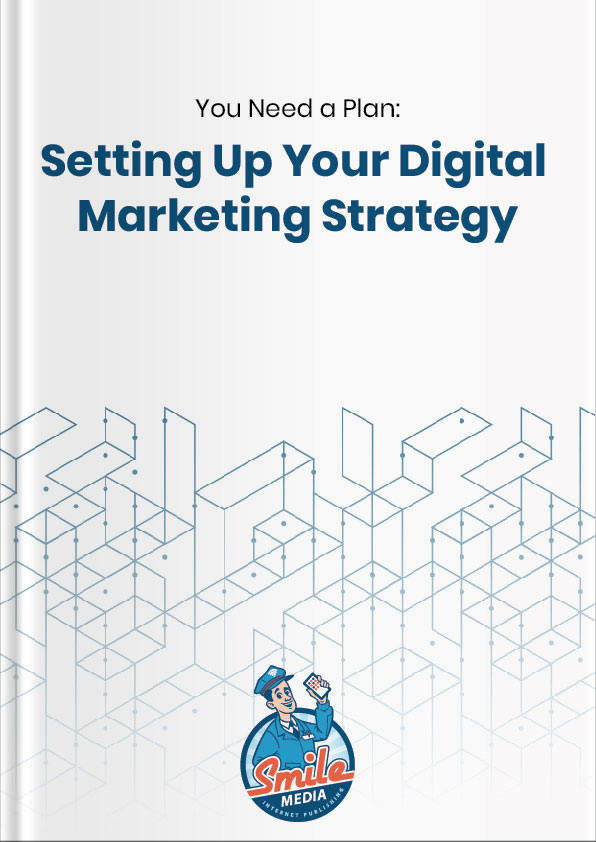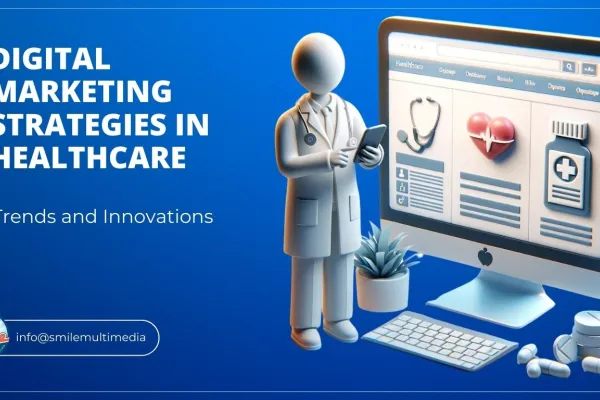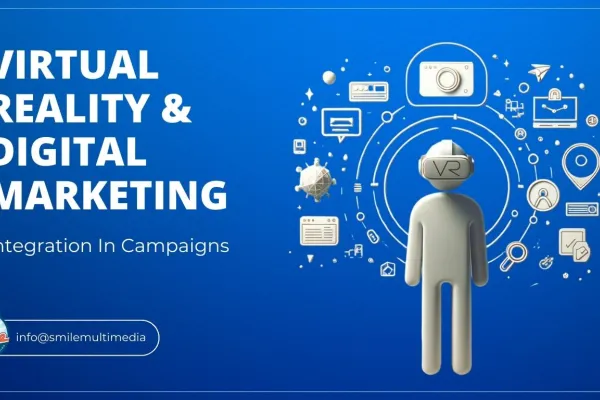Do you want to increase your brand visibility? You may want to try some digital marketing strategies that can place your brand in the limelight. Because the world is continuously evolving and modernization is clearly unstoppable, you need to keep up and remember that change is the only thing that will remain constant in this world.
A part of this change is how people deal with the internet. A large percentage of people from all over the world are now engaged in exploring the internet – joining different social media platforms, communicating with other people, online shopping, and searching the internet. Because there are so many people who are regularly engaged online, you should consider marketing through websites, blogs, and social media, among other mediums.
Digital marketing is an online marketing technique that will help you establish and promote your brand and your products or services through online promotions. In terms of effectiveness, you can say that digital marketing is taking over the traditional ways of marketing a brand and business. One of the many reasons why digital marketing is such an effective tool in building a brand name is that you can interact with your target audience in real time, thus yielding faster results. One of the most common types of digital marketing strategies is Search Engine Optimization or SEO, which is known to be the best way to build and expose your brand online.
What is SEO?
First, what is SEO? The term “Search Engine Optimization" means that you will "optimize" or rearrange your brand’s ranking on search engines, such as Bing, Yahoo, and of course, on Google. If you have a website, a blog, or an online shop, SEO is the best way to increase your website traffic. Also termed as a "natural" or "organic" process to grow your website's visibility, SEO efforts help businesses to rank higher in search results without any out of pocket costs.
The Importance of SEO
Why is this so important? Businesses today are challenged with succeeding in very competitive markets, especially when doing business online. Search engines are now the most trusted source of any information people are looking for. By simply typing a question or search term into a search engine, we can now almost instantly access a library full of information linked and related to the information we seek. People no longer need to physically go to a library or search for the physical location of the store they would want to review.
Staying up-to-date on the latest marketing trends means implementing an SEO strategy. It is important that you have a high ranking on Google or other search engines, because most users don't typically look past the first couple of pages in the search results. In fact, searchers normally focus on the first five results, or if they can't find what they are looking for, they may continue looking for up to the tenth item in the search results. Beyond that, your business is simply not being seen.
A higher rank on search engines also encourages the users to visit your website, because this establishes a trust in the relevance of your business and the security of your website. If search engines trust your website, users will do the same. If there are two websites offering the same products and services, the optimized website will generate more website traffic, thus increasing its sales.
As a bonus, your high rank on search engines will inspire more users to become engaged with your website and to try whatever product or service you might be offering. This, in turn will likely influence other people to check out your brand as well. Better yet, you may even get a "free promotion" on social media platforms, because people nowadays are expressing their satisfaction through Facebook, Instagram, Twitter, and other forms of social media.
Best Ways to Improve SEO
Now that you know how important SEO is, you might want to know how you can effectively apply SEO on your website, blog, or even your online store. SEO is a process and this may sound complicated at first, but there are only a few things that you need to review and get used to in order to achieve good results from SEO. Good SEO practices will not only give your website countless traffic or your brand an established name, but it will also improve the user experience of whoever visits your website.
Take note of these practices to achieve success in optimizing your website for search engines (and people):
1. Your Title Tag
Before publishing any content, be sure to check your title tag. Why is this important? Title tags tell the search engine what your website or blog is and what is it about. This will also tell the relevance of your website or webpage to the searched keyword by the user. Every web page should have a unique, but still compelling title tag that is still related to the website's name.
How can you make your title tag unique and effective? Your title tag should consist of both primary keywords and secondary keywords to drive more traffic to your website and increase your ranking whenever a user searches for that particular keyword or key phrase. Keep your title tags as short as possible with a maximum of only 50 to 55 characters, including spaces and symbols. Again, avoid duplicating your tags.
2. Match URLs to Titles
Most of the time, it is better to match your URL to the title of your content, but this does not mean that these should match word by word. You can emit stop words such as "and", "but", "of", and "a". That way, search engines and users will already know what your webpage is all about, without even looking or reading the title or even the meta description.
3. Make URLs Short
Remember that you need to emit stop words and articles when you are creating or rewriting your URLs. You don't want your URLs to be too long, simply because shorter links are preferable over longer links. The ideal number of characters in a single URL is around 50 to 60 characters including the special symbols. The value of your URL will increase if it's easily readable by both the search engine and the user. Shorter links are also easily copied, pasted, and shared to social media platforms whenever a user wants to share your webpage and its content.
In writing URLs, you should also take note that hyphens and underscores are the most common separators. URLs without separators between words are not readable to search engines and users.
4. Creative Meta Descriptions
In SEO, meta descriptions are important. Meta descriptions are the snippets/introductions to what your web page is all about. This summarizes the web page's content and provides an insight to the readers. While this may not really affect the ranking of your webpage on search engines, this will definitely affect the interests of your readers.
The rule in writing meta descriptions is to make it compelling and interesting. As mentioned above, this should be brief, with usually 150 to 165 characters, but that does not mean that your meta description cannot provide a quick insight. You can also write a statement that includes a call-to-action, such as the phrases "find out" or "learn more". Be sure to include keywords in the meta description to be highlighted when your web page pops up in the search results.
5. Relevant Keywords Are Still Required
Using keywords and key phrases are still recommended. Your content should be relevant to the user’s search, so you’ll need to include some keywords and key phrases that users will most likely use. Do consider including keywords two to three times in the content. Also, don't forget the primary keyword or key phrase in the title, the title tag, the meta description, and even in the URL as long as it is related and is readable.
6. Do Not Overuse Similar Keywords in the Same Content
Yes, keywords and key phrases are still required to optimize your website well on search engines, but overdoing this will result in the opposite. Your website's rank on search engines can decrease if they detect multiple keyword stuffing and repetition. The reason behind this is that this can be detected as "spammy".
Search engine algorithms have evolved and multiple keyword stuffing is not acceptable. Instead, this can hurt your website's ranking and you may risk losing the clicks that your website deserves. Try using keywords that are unique to every webpage you have. As long as it is relevant, the keywords will be useful. Also, avoid redundancy of words. You can replace other words with synonyms to avoid consequences.
7. Headers Are Also Considered
Headers are also important in optimizing your website in search engines. Header tags "H1" or "H2" are the most commonly used tags for headers. The first thing you need to know is that the main header tag, H1, is considered to be the subject line of your webpage. This is your main title that will be used in driving traffic to your website and increasing your rank on search engines.
On the other hand, a subheading tag, H2, can be used if there are multiple sections on your webpage. Heading levels should not be skipped and should always be in order, not just to denote a hierarchy of the content, but also to make it user-friendly and SEO-friendly. Remember that similar keywords should also be placed on the sub-headers or at least words related to the primary keywords.
8. Internal Linking Still Works
Why should you place internal links on your website? These are links that are normally found in your web content that will point directly to another webpage on your website. This is a good SEO practice, as it encourages users who found your website through a search engine to click through other pages of your site. This also shows search engines that your website provides relevant information regarding the keyword searched by the user, increasing your website's quality and trustworthiness and resulting in a higher rank on search engines.
Internal links are usually accompanied by an anchor text or the keywords linked. When linking to another page, always do consider thinking of a good, unique, and relevant keyword for your anchor text. Do not just simply write "click here" or "learn more" and link it, because that will not entice your readers.
9. Shorter, Readable Content
When writing the actual content, always consider the readability. Shorter content does not mean that you need to write only a few sentences or paragraphs. Short content is concise, but also informative, and won’t leave your readers with any questions.
Making content readable is not all about using simple words that are in layman's terms, but making it more appealing to the readers. It is advisable that you write shorter paragraphs with a complete thought, consisting of three to five sentences. Long paragraphs are sometimes the cause of losing the reader’s attention.
Also, be sure to break your paragraphs up because readers often just browse and look for the keywords they are searching for. Use bullet points or numbers to highlight important parts of your content. Not only will this result in good, readable content, but this will also tell the search engines that your page has important points related to what the user searched for.
10. Images Do Matter
People love images and pictures, so images do matter. However, it is not just the image that is important, but also the alt tags or the title of the images on your website. This will tell users something about what that image is all about and how important it is to your content and webpage. Alt tags are also good for search engines.
To effectively create an alt tag, remember to name all your images with proper descriptions telling what image is about. This will also increase the traffic to your website whenever a user searches for an image result only. In addition, always use hyphens and refrain from using other symbols and characters.
These SEO practices can give your website better readability and quality, which are important in optimizing your website on search engines. Every time you add a webpage, consider looking at these tips because they could be your key to a better ranking.
Still Confused?
If you are still confused about how to effectively optimize your website in search engines, consider seeking help from one of the top Boston web design firms, SMILE media, because they can assist you in implementing the best SEO practices. As a digital marketing agency with professionals specializing in SEO and other online marketing strategies, SMILE media knows how to help you improve the visibility of your website. Contact us today to get started.










